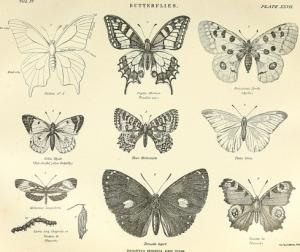We are not just animals. There is a greater purpose for each of us: a good end for each human generally and one particular to us if we choose wisely.
The moth hit the water right in front of me. Someplace, somebody told me that once an insect makes contact with pool water, there is no sense trying to save the poor creature. I have, however, watched the Lord of the Rings movies too many times just to watch the moth suffer. In the film, Gandalf is trapped in Isengard on the top of the Tower. He manages to capture a moth, speak to the insect, which flutters away, eventually bringing back an eagle to snatch Gandalf up. He is saved from his captivity by the cooperation of a chatty moth and a friendly eagle.
This is not how things went for me.
I cupped the wet insect in my hand and gently released the moth over the edge of the pool. The moth fluttered, began to fly, and we started to cheer, but not for more than a moment. A sparrow immediately swooped down and ate the moth. I am glad there was no eagle on the scene. Hope, who was splashing about the pool with me, said: “I guess we are not leaving Isengard this week.”
No.
We are not if we rely on the whimsy of the films.
Tolkien wrote fantasy, he was more tied to nature than the films. In the text, Gandalf is delivered by the Lord of the Eagles, but there is no moth. Generally one should not send an edible creature to chat up an eagle as the eagle, like my poolside sparrow, is likely to lunch before asking questions. The eagles of Tolkien are not tame and they can eat sheep that other sentient beings wish they would not. They are a bit bloodthirsty and are not servants of anyone. The Lord of the Eagles and Gandalf have a special relationship through Gandalf’s service to him, but there are limits to what Gandalf can ask. Tolkien’s eagles talk, though not all animals do, yet there is still a recognizable eagle nature.
The films tend to flatten all the different types of creatures. The great differences in natures between elves, men, dwarves, eagles, orcs, trolls, and other speaking beings is lost in the films. They might serve roles (dwarves for comedy, orcs for bad guys), but are not as distinct in being. Classically educated Tolkien knew that each bit of creation has a teleology: a purpose. The moth is not going to get us out of Isengard, but an eagle might or he might not. An eagle will end up being an eagle, unless Sauron or some other evil being twists his nature.
We look for purpose, the Creator’s divine plan, moving through life. We do not, or should not, expect the moth to be more than a moth or a sparrow to be more than a sparrow! Even in our novels, where we indulge in what-if, we give our imaginary creature purpose. The creatures of our imagination will be more interesting if we give them a unique reason for existing, a nature, that works out over time. Our talking eagles must act according to whatever nature we give them. If they end up just being “men in eagle’s bodies” then our imagination is poor.
All people are animals with immortal souls. Like sparrows, we get hungry. Unlike sparrows, we can pause and choose not to eat. We can have mercy on fellow creatures, becoming fully human when we worship God and fulfill Father God’s design plan for us. There are many things we can imagine or even desire to do, but they are not human and we are human. Even more wonderfully, God loves us (and all His creatures) as individuals. If we choose God’s way, then we have a unique place and purpose in His beloved Kingdom.
God created us for a purpose and He longs to see us choose that path. He stands ready to help and has eternity to bring to pass what we were designed to be. We may sometimes, like the moth, appear subject to cruel fate, but time keeps moving forward. We do not always get what we wish when we wish it. Some weeks we are stuck in the Tower of Isengard, but as surely as in the end, the entire cosmos cannot defy her purpose, so we will be free if we choose God.
We were created to be free.












